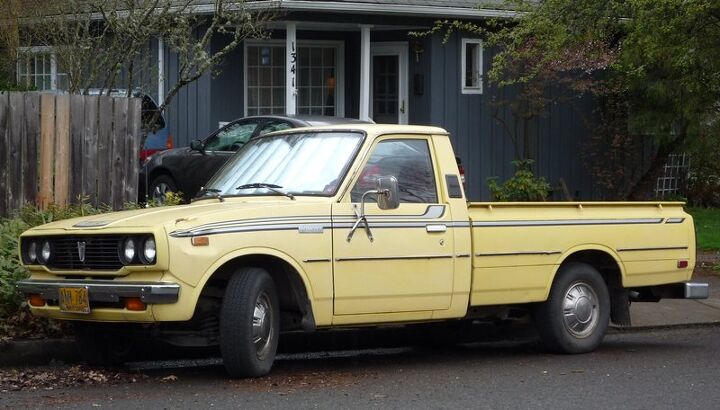#20-R
Curbside Classic: 1975 Toyota Hilux Pickup
After a deep immersion in cheap, plastic (un)fantastic Toyota electronic gas pedal assemblies, we need to swing the friction arm pendulum way far the other direction; right into a cast iron Hilux pickup. The only electronics in these would be a handful of transistors in the radio, if it even had one. If there had to be a vehicle to keep running indefinitely, I couldn’t think of a better choice. And I’m obviously not the only one: there are dozens of these on the roads hereabouts, being used daily by thrifty gardeners, carpenters, handy-men, and just homeowners wanting a weekend dump-run truck. There’s no question in my mind; if I wasn’t so tall and didn’t like a big bed, I’d be driving one of these instead of my old F-100.
















Recent Comments